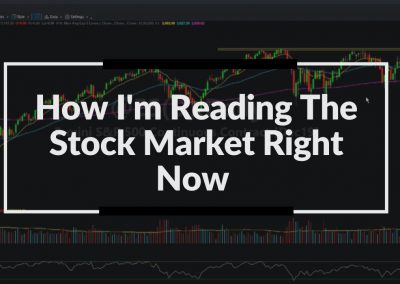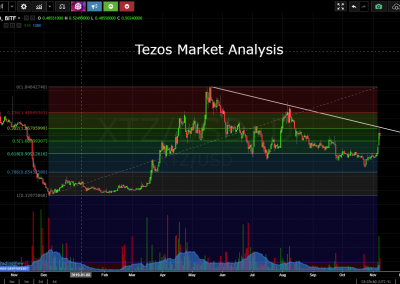If you go by what we’ve seen in TV show and movies, investing in the stock market looks like a group of people yelling “Sell! Sell!” in a hectic, crowded room of monitors.
Stock market investing can be intimidating due to the pictures painted by the media or movies. However, it has been a way of creating wealth for professionals and individuals for decades.
With a bit of a primer and a few keywords, you can begin the journey towards growing wealth with stock market investing.
Why invest in the stock market?
If you’re a novice in the stock market, the very idea of it might seem illogical. You’re taking your own hard-earned money and purchasing shares in companies that you’ll probably never visit or meet anyone who works there. When you invest in a company’s stock, you are buying shares of ownership in that company. Any company in the US, from Google to Apple to Walmart to Target is a public company that sells shares of stock.
Stock market investing gives you the opportunity to gain money through someone else’s work, either over a short or long period. You can research each stock and develop your own thesis in regard to what it will do in the future.
For example, if Stock X cost $5/share at this time last year and now costs $10/share, you might reason it will double again next year to $20/share. If you were to buy 10 shares of Stock X at $10/share today, you’d spend $100. If the price rose to $20/share next year, you could sell your shares for $200. That would give you a profit of $100.
A second reason to invest in the stock market is diversification. For many decades, people believed that the most valuable form of an asset was paper money (cash). People would keep some cash in their homes for emergencies – under the bed, in a wall safe, even buried in the backyard! But the value of money rises and falls with inflation and deflation, which means dollars can suddenly buy far fewer goods than they did the previous day. By investing in several different types of stocks, you can spread the value of your money out and not have it all lose value at any given time.
How to pick the right stock.
Research is king. Usually, the more research you do, it will help you have confidence in your decision. So what sort of things should you research?
You’ll want to look at SEC filing reports and price-earnings ratios for a start.
Every public company should have an “investor relations” website where you can search all of their reports and listen to conference calls. Annual reports such as a 10-K detail the financial standing of a company. You’ll be able to see everything from cash on the balance sheet, to outstanding debt. It’s also very helpful to listen to quarterly conference calls to get a picture of how the company is doing and where they expect to go in the future.
A price-earnings (P/E) Ratio measures how much the current price per share compares to its per-share earnings. As a general rule of thumb, the lower the P/E ratio, the more undervalued the stock could be. The idea is to compare Stock A’s P/E ratio to all others in the sector and decide if it’s low or high in comparison. Of course, each sector is different and a low P/E ratio doesn’t guarantee an undervalued company. Some sectors generally have lower P/E ratios (airlines would be a good example). Technology stocks generally have higher P/E ratios.
If you’re a tech hound, the stock market can be a great place to hedge your bets on what the next transcendent technology will be. Imagine if you had chosen August 19, 2004, as the day you would first invest in the stock market. That was the day that a company called Alphabet released its initial public offering for $85/share. If you’ve never heard of Alphabet, its the parent company of Google.
Google is a blue whale in the ocean of stocks, but there are plenty of tech companies out there for stock market investing that have potential as technology evolves.
How to pick a stockbroker.
While the Internet has made things a lot simpler when it comes to stock market investing, there’s also nothing wrong with consulting a professional when you need answers or want to set up a long-term strategy.
Stockbrokers are like stocks themselves, there is a lot of variety out there and they have different strategies.
There are several essential requirements to research when you’re seeking out a stockbroker to handle your investment portfolio. These requirements include:
1) How much do you want to invest? Some brokers have a minimum investment required.
2) How much does the broker charge in fees? Most actions, such as buying or selling stock, come with a cost as well as a fee that goes directly to the person or company managing your portfolio.
3) What are your goals in investing in the stock market? Do you have some extra money you want to try and turn into a tidy profit? Are you saving up for a big purchase like a house, a car, or your retirement fund?
You may need to find a stockbroker who is willing to work with your risk tolerance and goals simultaneously.
Executing your own trades.
You don’t actually need a stockbroker if you wish to do your own research, execute your trades and manage your investments.
The internet has now made this extremely easy to do by opening an account with a brokerage which gets you direct connections with stock exchange data (this means you get the best price and instant execution).
You can then buy and sell stocks on your own terms and a lot of the brokerages out there are getting competitive with commision pricing.
Most brokerages have very user-friendly stock trading platforms that you can access with a funded account. You can pull up beautiful candlestick charts, design a quick widget to help you buy or sell quickly, and customize which stock tickers you want to see.
Stock market investing does not come without risk. However, with the internet and online brokerages, it’s never been easier to get all of the information you need to make informed decisions and find education material to help you along the way.
Investing in any market is like any other trade or skill, you have to spend time learning how to do it properly to find success.











